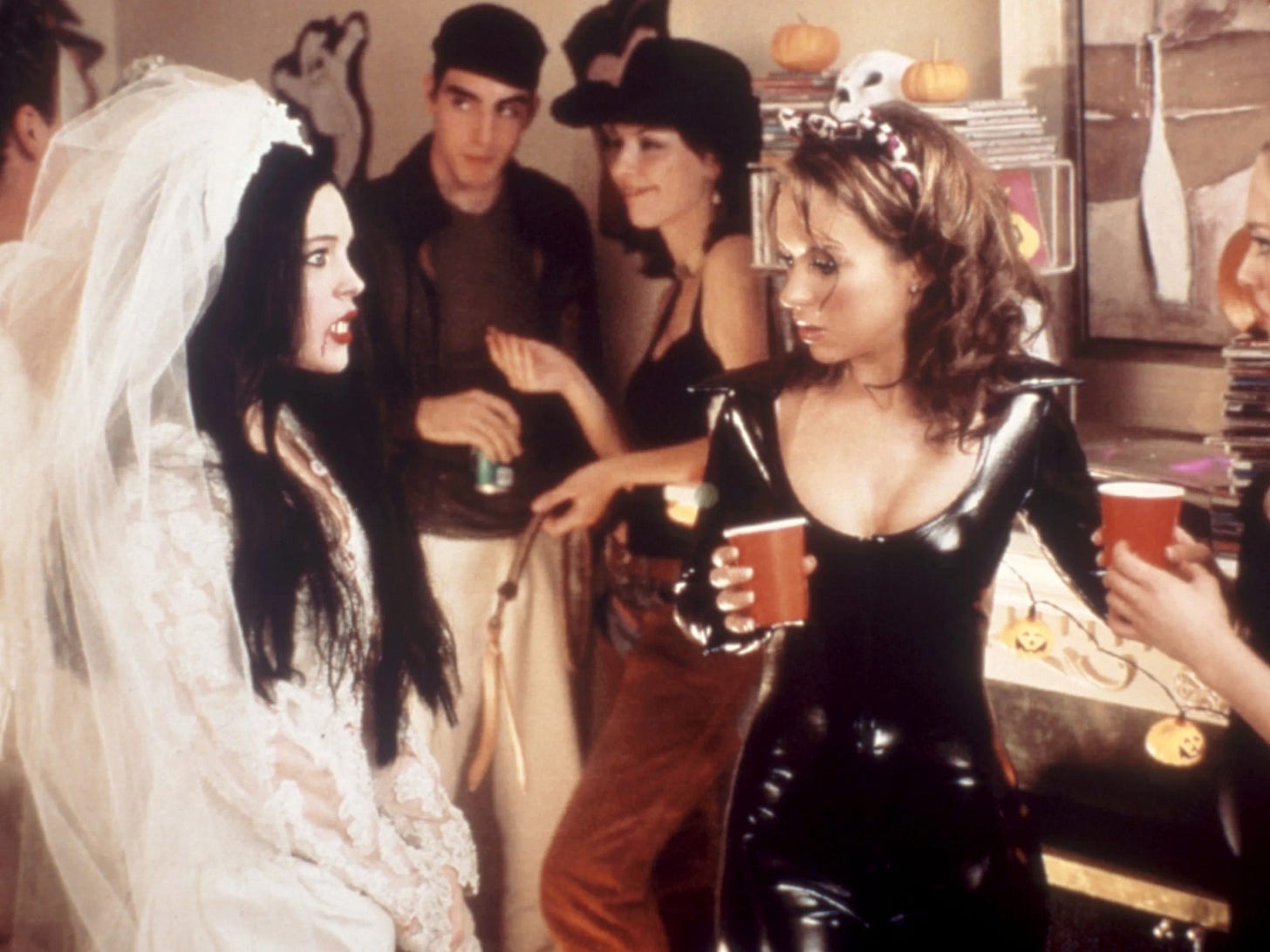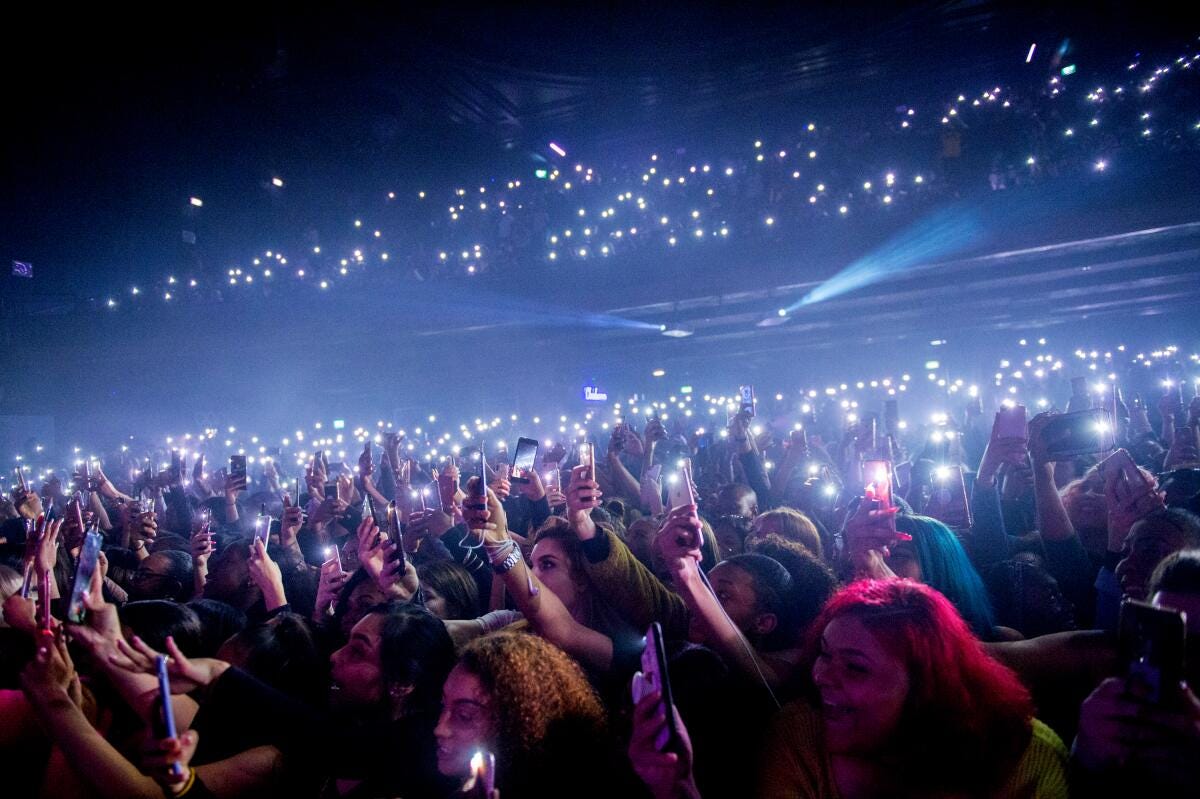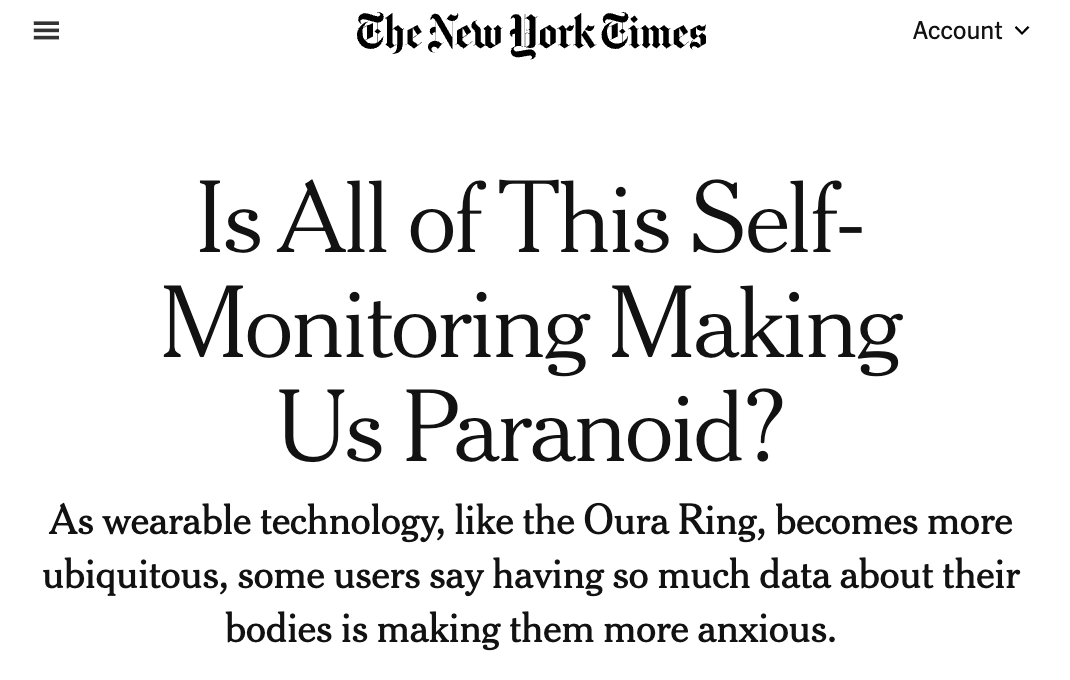But beyond social media, there’s another catalyst causing this shift: information. Smartphones and wearable tech have gifted young people access to an insane amount of knowledge about themselves, in particular when it comes to their health and well-being.
Biotech apps and devices, wellness creators, and fitness influencers have brought discussions about mental health, addiction, and physical well-being into centre stage. And while health warnings on cigarette packs might go overlooked, a viral TikTok about the long-term effects of smoking, drinking, or unhealthy eating is more than likely to make an impression.
For many, the dark side of consuming alcohol has surpassed any of its perceived social benefits. Data insights from wearable tech can reveal the negative health impact of even one or two drinks, including elevated heart rate and disrupted sleeping patterns, while long-term use results in two things Gen Z fears most: rapid ageing and deteriorated health. It shouldn’t be surprising then, that more and more young people are proudly labelling themselves ‘sober-curious’.
Finally, and perhaps most importantly, Gen Z doesn’t consider it ‘lame’ to prioritise personal health. Swapping cocktails for an adaptogen drink or gut-healthy beverage while socialising with friends is the new norm. Nights spent dancing at the bar are being replaced by kickbacks, where young people are free to pick their own music, watch YouTube videos, and tune into livestreams in their own personal spaces. For a generation that puts their personal tastes and well-being first, dingy pubs and tomorrow’s hangovers are only barriers to long-term progress.

Finally, we have to talk about sex. Once seen as the ultimate taboo topic, sex is no longer some mysterious, off-limits part of young life. Growing up overwhelmed by hypersexual media, dating apps, and rampant hookup culture, many young people have grown concerned about missing out on the chance to build real, meaningful connections.
Instead of rejecting intimacy altogether, young people are being intentional with who they connect with, striving for genuine relationships and romance. Open discussions about consent and personal boundaries have caused young people to rethink how sex fits into their lives and whether it’s truly something they want, rather than something that’s expected. Is this really surprising for a generation that grew up witnessing the rise of twerking, in tandem with the #MeToo era?
While a drop in smoking, drinking, and irresponsible casual sex don’t exactly spell out negative trends, the forces driving them should spark our attention – especially because Gen Z’s retreat from traditional vices doesn’t mean they’re vice-free.
Social media is extremely addictive too and, for many, hours scrolling TikTok has replaced time socialising in real life. The ultra-curated aspect of social media is known to foster a damaging perfectionism in young people. Evidence that social media is a source of anxiety, depression, negative body image and poor self-esteem in young people only continues to grow.
And while a rise in health consciousness is great, constantly tracking every element of our existence – from heart rates, daily step counts, and sleep quality – can create unhealthy fixations on our wellbeing. Towing the line between healthy and obsessive can be a difficult one.
Although Gen Z has the same desires to be as fun, free, and alive as the generations that came before them, challenging the status quo has resulted in them adopting many positive behaviours not typically associated with youth.
It’s caused their elders to ask, worryingly: are the kids truly living?
Following their true nature, the way Gen Z interprets this question and how they answer it will be vastly different. Of course that’s the case… the year isn’t 2004 anymore.

the latest stories in youth culture and changing trends . . .
Gen Z loves a freaky little accessory (in style)
What can only be described as “emotional support charms” are becoming all the rage. Cutesy, creepy, and fuzzy friends are being looped on belts, draped on bags, and even worn as jewellery, creating a look that’s meant to startle onlookers, and soothe the wearer. Why might an adult woman hang a collectible gremlin from her designer bag? The answer is part security blanket, part jump scare. Read more
‘Micro-shifts’: Gen Z sets another workplace trend in 2025 (forbes)
Gen Z is rewriting shift work in an emerging trend known as “micro-shifts.” According to the report, micro-shifts are flexible, short (six hours or less) shifts towards more flexible work arrangements, allowing workers to balance responsibilities such as caregiving, education or multiple jobs. Micro-shifts tap into an underutilised pool of talent by challenging traditional employer-employee relationships. Read more
Gen Z trusts social media financial advice more than any other generation (inc)
Nearly 70 percent of Gen Zers admit to being influenced by a financial trend they discovered online, according to a recent survey by the banking app Spruce. Only 51 percent of Millennials and 27 percent of Gen X respondents said the same. One-third of Gen Zers take this even further, looking to social media for financial education. Another survey estimates an even higher number, with 72 percent of Gen Z respondents said they go to social media and the internet for financial advice, compared with 57 percent of Millennials and 38 percent of Gen X. Read more
‘Locking in’ trend encourages hyperfocus away from smartphones (the times)
There is an online trend encouraging young people to “lock in” and concentrate on a goal. Use of the phrase has come to characterise an intense state of hyperfocus where anything perceived as a negative distraction — such as social media or alcohol — is sacrificed until a goal is reached. Videos show Gen Z boasting about “locking in” on a specific objective such as passing an exam, making progress in a career, earning money or getting healthier. The time period for “locking in” can range from hours to a year, while the phrase is distinguished by its all or nothing and tough love approach. Read more

That’s all for this week! Make sure to subscribe for the latest on Gen Z and youth culture, and check out The Common Thred for a weekly roundup of the latest news, trends and thought pieces.
Peace out!! 🌟



























